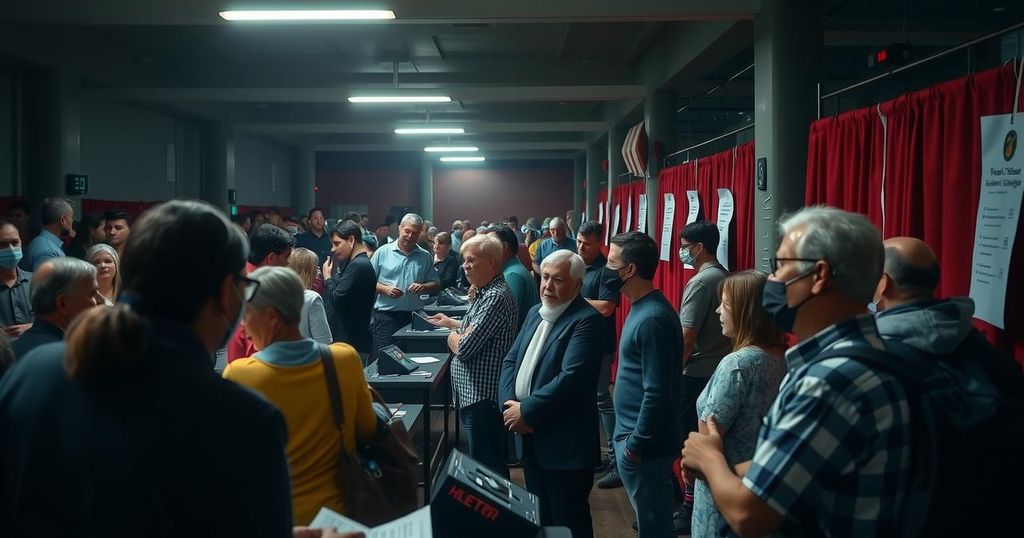Uruguay Set to Hold Crucial Presidential Runoff Election
Voters in Uruguay prepare for a critical presidential runoff election on Sunday, featuring center-left candidate Yamandu Orsi and conservative Alvaro Delgado. Polling indicates a very close race, with less than 25,000 votes possibly separating the candidates. Unlike other Latin American elections, this contest has fewer political tensions, with both candidates vying to mobilize undecided voters and those from smaller parties.
Voters in Uruguay, a nation renowned for its tranquility, beaches, and progressive policies, convene on Sunday for a critical second-round presidential election amidst a year marked by extensive electoral activity. The runoff features center-left candidate Yamandu Orsi, representing the Broad Front, against conservative Alvaro Delgado, who is aligned with the National and Colorado Parties. Final polls indicate a narrowly contested race, with estimates predicting a divide of less than 25,000 votes separating the contenders.
Uruguay’s political landscape stands out from the sharp partisan divides observed in neighboring Argentina, Brazil, and Mexico, fostering a more stable and less contentious electoral competition. Polling stations will open at 8 a.m. local time, concluding operations at 7:30 p.m., with initial results anticipated shortly thereafter. Mr. Orsi, who previously garnered 43.9% in the first round, articulates a vision of a moderate left, while Mr. Delgado, having secured 26.8% of the earlier votes, seeks to maintain the continuity of President Lacalle Pou’s governance, who is ineligible for reelection.
Neither candidate commands an outright majority in the lower house, as reflected in the October elections, although Mr. Orsi’s coalition succeeded in acquiring 16 Senate seats, positioning him favorably for potential governance. Both candidates aspire to sway approximately 8% of the initial electorate who supported unaligned parties and to energize those who abstained during the previous vote. However, analysts indicate that recent debates failed to significantly impact voter preferences.
As this pivotal election approaches, key questions arise regarding the potential for incumbent parties to retain their standings amidst a global trend of voter discontent due to economic hardships. Analysts suggest that Uruguay’s steady economy might favor Mr. Delgado, as indications show limited appetite among voters for drastic political alterations, emphasizing the complexity of the electoral dynamics at play.
Uruguay, with a populace of approximately 3.4 million, is known for its political stability and progressive policies, such as the legalization of marijuana. The nation has recently navigated complex electoral challenges, with this presidential election serving as a culmination of a vibrant electoral year. The political context surrounding this election is characterized by broad coalition interplay and a relative absence of the extreme polarization found in other Latin American countries. This backdrop has contributed to a significantly more amicable political atmosphere as key parties consolidate their strategies in anticipation of the runoff.
In summary, Uruguay’s upcoming presidential runoff presents a significant electoral moment characterized by a competition between moderate and conservative ideologies within a unique political landscape. The outcome is poised to reflect broader implications concerning the electorate’s willingness to embrace change amidst economic pressures. The election not only underscores the significance of coalition dynamics in Uruguayan politics but also tests whether incumbency will prevail in a context of economic challenge that has shifted voter sentiments globally.
Original Source: www.ndtv.com




Post Comment